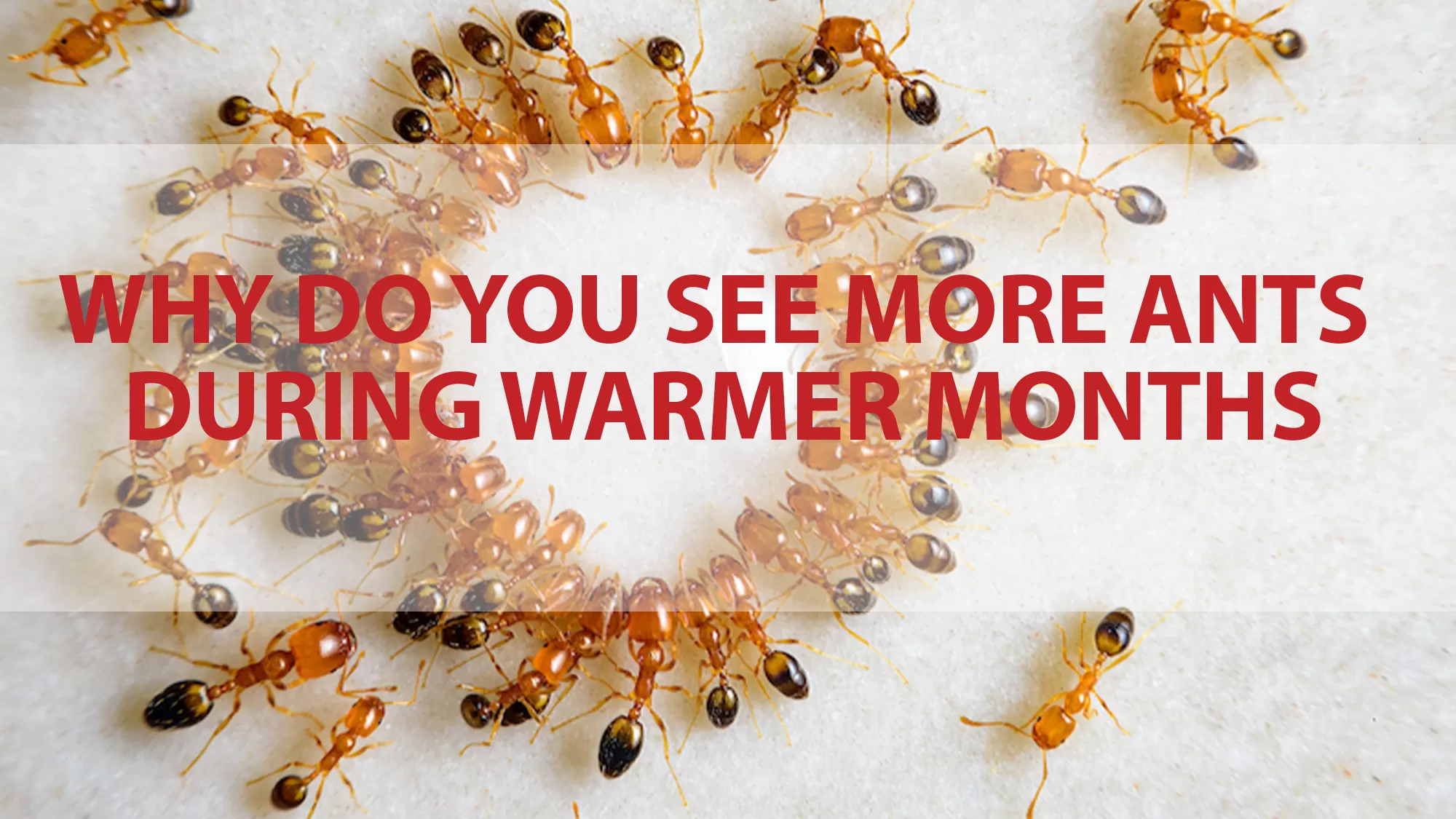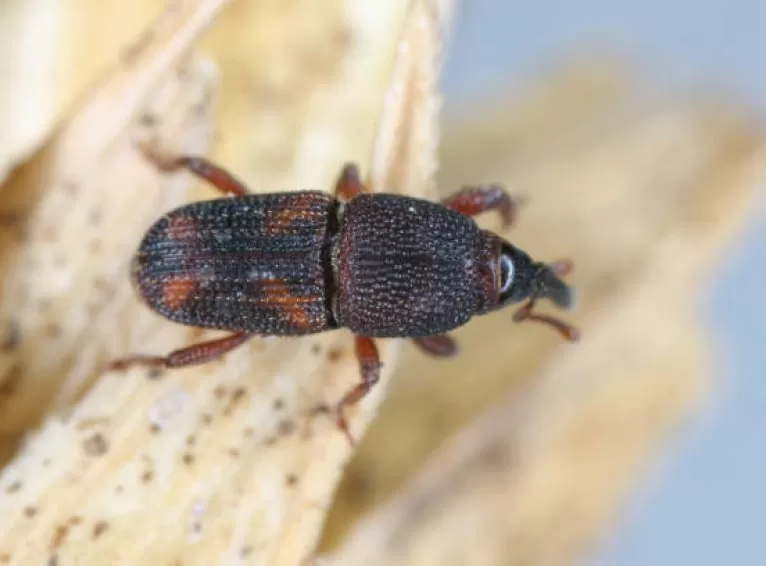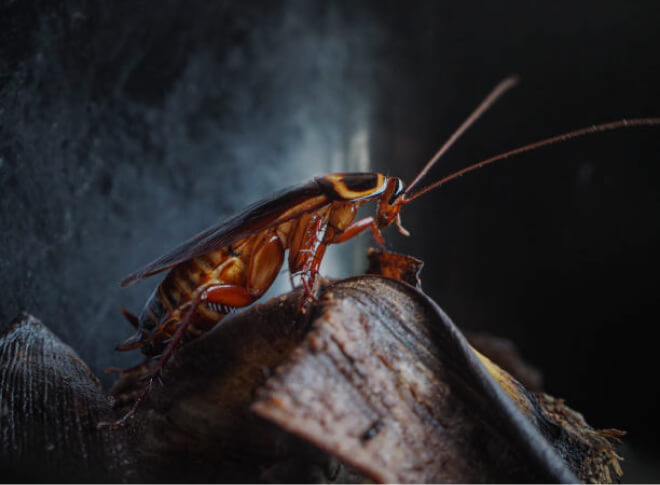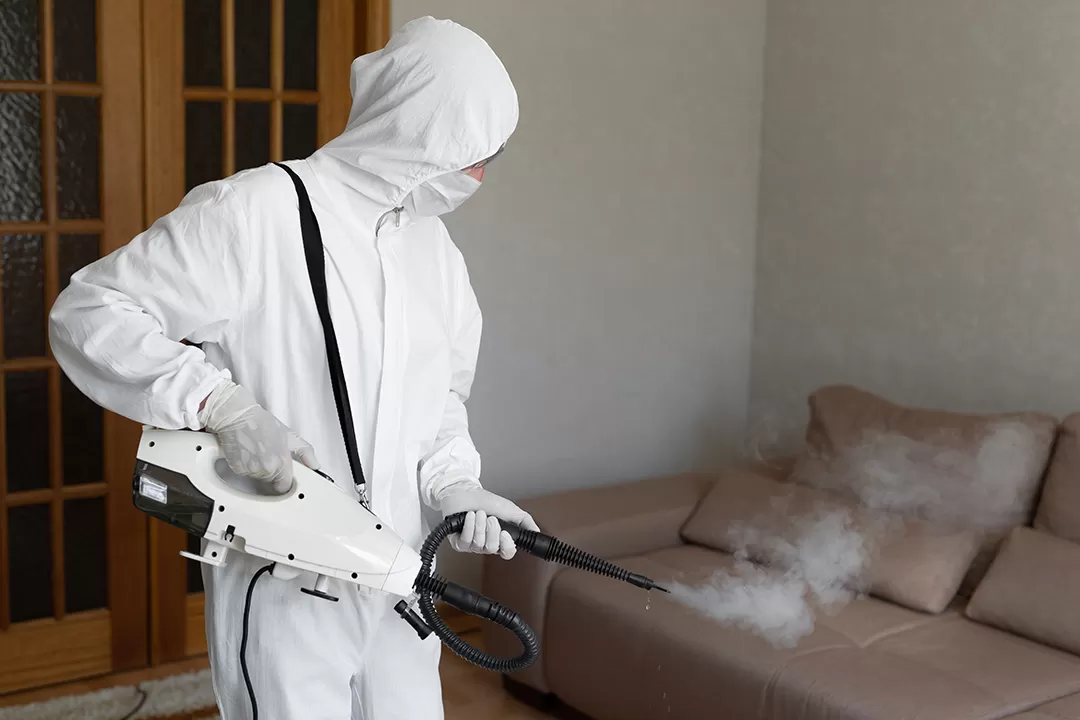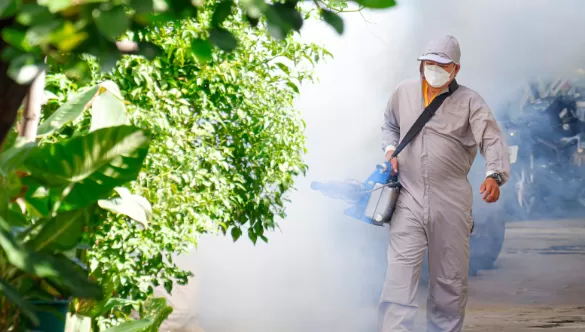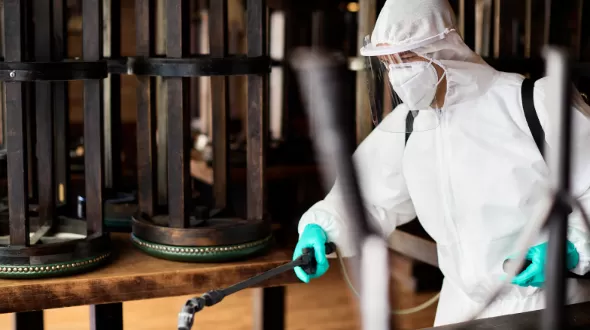Ever wondered why ants are usually more active during warmer months? Ants thrive in warm temperatures and typically do more work during the summer months. It is difficult to tell in Singapore, but ant activities are generally absent during cooler months.
No wonder ants enjoy the year-long summer weather in Singapore. So, what is it about summers that ants love so much? Let’s find out! Here, we have identified why ants are more active in warmer temperatures. Keep reading to discover what about your home might attract these pests and how to keep them at bay.
Why Are Ants More Active During Warmer Months?
The simple answer to this is: Ants hate winter! Like many other pests, ants try to combat freezing temperatures by hibernating. Ants are cold-blooded pests that will reduce their movement in cooler months. Some ants enter partial hibernation, while some die during winter.
However, the scene changes entirely in spring and summer when the temperature is higher outside. After spending brutal winters in hiding, often buried under layers of snow, ants come out of hiding in the warmer seasons. They use this time to build nests and find food.
As their body temperature rises, the pests become more active. They mate and reproduce. They also collect food for the winter months to ensure they do not have to leave the safety of their nest during brutal winter months. This is part of their natural life cycle. In countries like Singapore, where winter is non-existent, ants remain active all year round.
Why Are Ants Attracted to Your Home During Warmer Months?
Warmth is a physiological need for ant survival, but that is not the only thing that draws ants towards your home. Sure, summertime is accompanied by cooler nights. So, ants may invade your home in search of a warm nest. However, they will extend their stay in your home if they find a good source of food and water waiting for them.
Food, water, and heat – you can end up with a severe infestation if your home offers all three. These scavenger pests can enter your property through the smallest of gaps and will also invite the entire ant colony before you know it. Here are five common reasons why you might have an ant problem:
Warmer Weather
Not only do ants feel more energised in hot weather, they also reproduce faster in warm temperatures. So, living in a warm country automatically puts you at risk of ant infestation.
Overcrowded Ant Nests Outdoor
If the ant nests around your home have become overcrowded, they are more likely to spread inside your house. As you know, ant colonies multiply rapidly in summer when the queen ants frequently produce eggs. Because many ant species do not survive cold weather, so they look for a warm place to hide throughout winter.
Plenty of Food
Food is the main reason that any pests come into your home. Ants may be drawn to your house because they have found plenty of food. Ants like sugary, sticky, and sweet food like jelly, fruits, or syrup, but they also eat a variety of other things. In fact, ants can eat dog food and even pet hair. Ants also eat proteins such as fish and meat. Once ants discover a food source, they will repeatedly raid it. Each time, they will bring more and more ants from their colony.
Easy Entry Points
Another reason you may have an ant infestation is the gaps in your home. If there are a lot of openings, cracks or crevices in the foundation, windows, doors, and siding of your home, ants can enter your property quite easily. They can also hide in electrical outlets if you have loose-fitting faceplates. Beware, as ants are infamous for causing damage to wires and electrical appliances.
Access to Water
Ants are always looking for water. So, if you have leaking faucets and pipes in your house, ants will find a comfortable home in your place in the summer heat. To avoid ant infestation, fix any water leaks as soon as possible.
How to Prevent Ants in Your Singapore Home
Now, you know how easily your home can attract ants and how quickly the infestation can grow out of control. Thanks to their tiny size, ants are easy to ignore. However, letting an ant population grow is a bad idea. The best way to avoid ant infestation is to take adequate preventive measures.
First things first, pay heed to how you are handling food, leftovers, food spills, and food waste. All of these can serve as viable food sources for the pests.
Store all your food in air-tight containers or zip-lock bags. If there are any food spills, clean it immediately. After cleaning the crumbs and spill, wipe the surface with a disinfectant to remove the scent trail.
Throw food waste in a trash can with a lid and make sure to dispose of it daily. Also, fix any water leaks in the house to remove water sources for ants.
Scrutinise the house and seal any cracks, gaps, and holes with caulk and silicone sealant to eliminate entry points. As an added measure, you can spray ant repellants on all potential entry points. By taking these simple measures, you can make your home unappealing to ants. Finally, you can prune back shrubs, trees, and bushes. This will create an ant barrier and keep them from entering your home. Do not let clutter, such as mulch or dry leaves, pile up against the house’s foundation. Also, do not stack firewood against the house.
Conclusion
There are several reasons why ants enjoy warmer temperatures. These cold-blooded insects prefer summer because they can be more active during these months. In winter, they hibernate.
Because ants do not come out of their hiding place in winter, they work hard during the warmer months to collect food that can last them throughout winter. They are also busy building new nests and reproducing during the warmer months.
Don’t worry; you can prevent ant infestation by simply maintaining the house and taking care of its general cleanliness. In case the ant problem escalates, you can call pest control experts for help.

